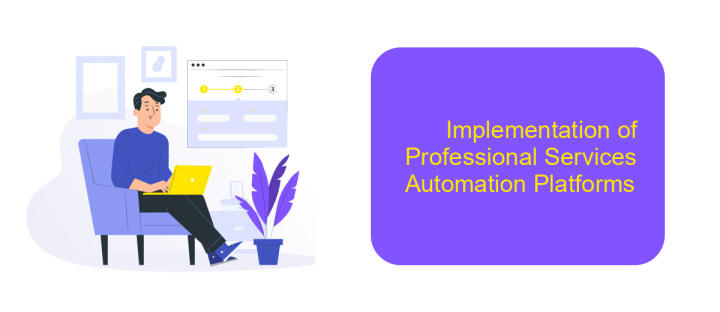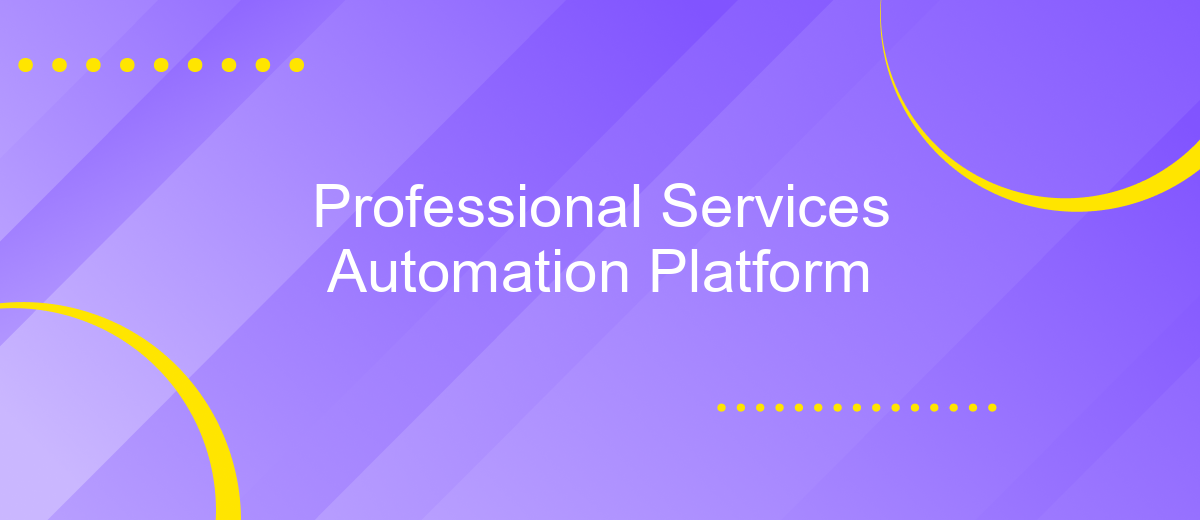Professional Services Automation Platform
In today's fast-paced business environment, efficiency and streamlined operations are crucial for success. Professional Services Automation (PSA) platforms offer a comprehensive solution to manage projects, resources, and finances seamlessly. By integrating various functions into a single platform, PSA tools empower organizations to enhance productivity, improve collaboration, and drive profitability. This article explores the key features and benefits of implementing a PSA platform in your business strategy.
Introduction
In the rapidly evolving business landscape, organizations are constantly seeking ways to enhance efficiency and streamline operations. Professional Services Automation (PSA) platforms have emerged as a critical solution, providing businesses with the tools necessary to manage projects, resources, and finances effectively. By integrating these functions, PSA platforms enable companies to optimize service delivery and improve profitability. As businesses grow, the need for a comprehensive system that can handle complex operations becomes indispensable.
- Efficient project management and resource allocation
- Comprehensive financial management and reporting
- Seamless integration with existing business systems
- Enhanced collaboration and communication tools
- Scalability to accommodate business growth
Adopting a PSA platform can transform the way professional services firms operate, allowing them to focus on delivering value to their clients. By automating routine tasks and providing real-time insights, these platforms empower businesses to make informed decisions and drive strategic growth. As the demand for efficient service delivery continues to rise, PSA platforms offer a competitive edge, ensuring that organizations remain agile and responsive in a dynamic market environment.
Benefits of Professional Services Automation Platforms

Professional Services Automation (PSA) platforms offer a myriad of benefits for businesses seeking to streamline their operations and optimize service delivery. One of the primary advantages is enhanced efficiency through automation of routine tasks, such as project management, time tracking, and billing. This automation reduces manual errors and frees up valuable time for professionals to focus on strategic activities. Additionally, PSA platforms provide a centralized system that improves collaboration and communication among team members, ensuring that everyone is aligned and working towards common goals.
Another significant benefit is the ability to integrate seamlessly with other business tools and systems. For instance, services like ApiX-Drive facilitate the integration process, allowing businesses to connect their PSA platforms with CRM, accounting, and other essential applications without the need for extensive technical expertise. This integration capability ensures data consistency and real-time visibility across all business functions, leading to better decision-making and increased productivity. Ultimately, PSA platforms empower organizations to deliver exceptional service quality while maximizing resource utilization and profitability.
Key Features of Professional Services Automation Platforms

Professional Services Automation (PSA) platforms are essential tools for managing the complexities of service delivery. These platforms streamline operations, enhance productivity, and provide valuable insights into project performance. By integrating various functionalities, PSA platforms enable organizations to efficiently manage resources, projects, and finances.
- Project Management: PSA platforms offer robust project management tools that facilitate planning, execution, and monitoring of projects, ensuring they are delivered on time and within budget.
- Resource Management: These platforms help allocate and optimize resources, ensuring the right people are assigned to the right tasks, maximizing efficiency and minimizing downtime.
- Time and Expense Tracking: PSA tools provide accurate tracking of time and expenses, enabling precise billing and improved financial management.
- Financial Management: They offer comprehensive financial management features, including invoicing, budgeting, and forecasting, to ensure financial health and profitability.
- Analytics and Reporting: With advanced analytics and reporting capabilities, PSA platforms deliver actionable insights, aiding in strategic decision-making and performance improvement.
Incorporating a PSA platform into your organization can significantly enhance operational efficiency and project delivery. By automating key processes and providing real-time data, these platforms empower businesses to make informed decisions, ultimately driving growth and success.
Implementation of Professional Services Automation Platforms

Implementing a Professional Services Automation (PSA) platform is a strategic move for organizations aiming to streamline their service operations. The process begins with a comprehensive assessment of current workflows and business needs. This evaluation helps in selecting a PSA solution that aligns with the organization's objectives and integrates seamlessly with existing systems.
Once a suitable platform is chosen, the next step is to plan the implementation meticulously. This involves setting clear goals, assigning a dedicated project team, and establishing a realistic timeline. Engaging stakeholders from various departments ensures that the platform meets diverse needs and gains wide acceptance.
- Conduct a thorough needs analysis to tailor the PSA platform to organizational requirements.
- Ensure seamless integration with existing software to maintain data consistency.
- Provide comprehensive training to staff for smooth adoption and maximum utilization.
- Continuously monitor and optimize the platform to align with evolving business processes.
Successful implementation of a PSA platform can significantly enhance operational efficiency, improve resource management, and drive business growth. By following a structured approach, organizations can harness the full potential of their PSA systems, ensuring they deliver value and support long-term strategic goals.
Conclusion
In conclusion, the implementation of a Professional Services Automation (PSA) platform can significantly streamline operations and enhance efficiency for service-oriented businesses. By centralizing project management, resource allocation, and time tracking, a PSA platform provides a comprehensive solution that aligns business processes with client expectations. This not only leads to improved project delivery but also increases profitability by optimizing resource utilization and reducing operational overhead.
Moreover, the integration capabilities of PSA platforms, such as those offered by services like ApiX-Drive, enable seamless connectivity with other business tools and systems, further enhancing their effectiveness. By automating data flow between applications, businesses can minimize manual errors and save time, allowing teams to focus on strategic initiatives. Ultimately, a well-implemented PSA platform empowers organizations to deliver exceptional service quality, adapt to changing market demands, and drive sustainable growth in an increasingly competitive landscape.
FAQ
What is a Professional Services Automation (PSA) platform and how does it benefit businesses?
How can a PSA platform improve project management?
What are the key features to look for in a PSA platform?
How can businesses integrate a PSA platform with their existing systems?
What challenges might businesses face when implementing a PSA platform?
Do you want to achieve your goals in business, career and life faster and better? Do it with ApiX-Drive – a tool that will remove a significant part of the routine from workflows and free up additional time to achieve your goals. Test the capabilities of Apix-Drive for free – see for yourself the effectiveness of the tool.

